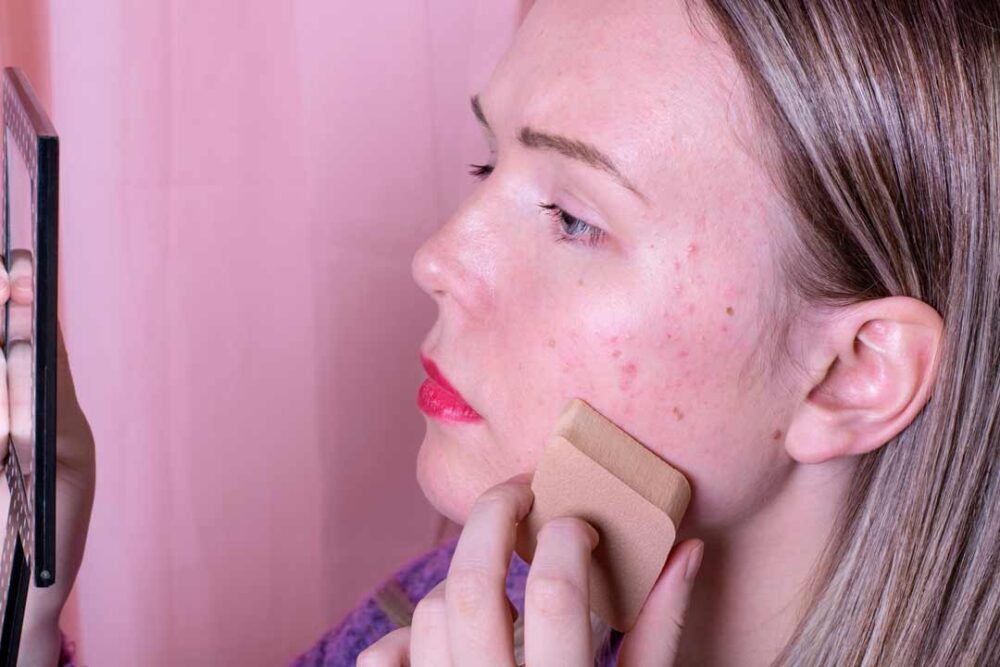Are acne scars dampening your confidence and making you feel self-conscious? You’re not alone. Acne scars can be a constant reminder of past skin troubles, but the good news is that there are effective treatments available to help fade those scars and restore your skin’s natural beauty.
In this comprehensive guide, we’ll walk you through everything you need to know about choosing the best treatment for acne scars. Say goodbye to those pesky reminders and hello to renewed confidence!

Understanding Acne Scars
Best treatment acne scars are the result of inflamed blemishes caused by excess oil, dead skin cells, and bacteria. When the skin’s natural healing process is disrupted, it can lead to the formation of scars. The severity of acne scars can vary, and understanding the different types is crucial in determining the most effective treatment approach.
🏆
The 2024 Creative Retail Awards are open for entries.
The Creative Retail Awards are much more than a mere accolade; they represent the pinnacle of achievement in the retail industry. Garnering a nomination or winning one of these awards is a testament to innovation, excellence, and leadership.
www.creativeretailawards.com
Types of Acne Scars
Boxcar Scars
Boxcar scars are characterized by their angular, well-defined edges and resemble small craters on the skin’s surface. These scars often respond well to various treatments, making them a common target for scar reduction therapies.
Ice Pick Scars
Ice pick scars are deep, narrow scars that extend into the skin. They are known for their resemblance to small, deep holes, often caused by cystic acne. Treating ice pick scars may require more intensive procedures due to their depth.
Rolling Scars
Rolling scars create a wave-like appearance on the skin and are caused by bands of tissue forming between the epidermis and deeper skin layers. These scars can be effectively treated with certain procedures that target the fibrous tissue.
Hypertrophic Scars
Hypertrophic scars result from an overproduction of collagen during the healing process. They appear raised and may be darker than the surrounding skin. Treating hypertrophic scars often involves a combination of approaches to soften and flatten the scar tissue.
Factors Influencing Treatment Choice
The choice of treatment for acne scars depends on various factors, including scar type, skin type, and individual preferences. Consulting a dermatologist is essential to determine the most suitable treatment plan tailored to your specific needs.
Topical Treatments for Acne Scars
Retinoids
Retinoids, derived from vitamin A, are known for their skin-renewing properties. They work by promoting cell turnover and collagen production, helping to improve the appearance of acne scars over time.
Vitamin C Serums
Vitamin C serums are rich in antioxidants and can help brighten the skin and improve the overall texture of acne scars. Regular use can contribute to a more even skin tone and diminished scars.
Hydroquinone
Hydroquinone is a skin-lightening agent that can reduce the appearance of dark acne scars. It works by inhibiting melanin production, leading to a more balanced skin tone.
Minimally Invasive Procedures
Microneedling
Microneedling involves the use of fine needles to create controlled micro-injuries in the skin. This stimulates collagen production and enhances the skin’s natural healing process, reducing the appearance of scars.
Chemical Peels
Chemical peels involve applying a solution to the skin, causing the outer layer to peel off. This reveals smoother, rejuvenated skin underneath and can improve the look of superficial acne scars.
Laser Therapy
Laser treatments target scar tissue with concentrated beams of light, stimulating collagen production and helping to remodel the skin. Different laser types are used based on the scar’s characteristics.
Surgical Procedures
Punch Excisions
Punch excisions involve surgically removing individual acne scars and suturing the skin. This method is suitable for deep scars and leaves minimal scarring behind.
Subcision
Subcision is a surgical technique that breaks down fibrous bands beneath the skin, allowing depressed scars to rise to the surface. This procedure promotes smoother skin texture.
Dermal Fillers
Dermal fillers are injected beneath the skin to raise depressed scars. These fillers add volume and plumpness, reducing the appearance of scars for a more even skin surface.
Natural Remedies for Acne Scars
Aloe Vera
Aloe vera has soothing and anti-inflammatory properties that can help improve the appearance of scars. It moisturizes the skin and supports its natural healing process.
Rosehip Oil
Rosehip oil is rich in vitamins and fatty acids that aid in skin regeneration. Regular application can help fade scars and improve skin elasticity.
Honey and Lemon
A mixture of honey and lemon has natural exfoliating and lightening properties. This combination can help diminish the appearance of acne scars over time.
Combination Therapies for Optimal Results
In some cases, combining different treatments can yield more comprehensive results. Your dermatologist may recommend a personalized combination approach to address various aspects of acne scarring.
Consulting a Dermatologist
Before embarking on any treatment journey, it’s crucial to consult a dermatologist. A professional assessment will help determine the most suitable treatment options based on your skin type, scar severity, and desired outcomes.
Maintaining Skin Health to Prevent Future Scarring
While treating existing scars, it’s important to focus on preventing new ones from forming. Establishing a consistent skincare routine, using non-comedogenic products, and avoiding picking at blemishes can all contribute to minimizing future scarring.
Lifestyle and Skincare Tips for Acne-Prone Skin
Stay Hydrated: Drinking plenty of water helps maintain skin hydration and overall health.
Healthy Diet: Consuming a balanced diet rich in vitamins and minerals supports skin health.
Gentle Cleansing: Use a mild cleanser to avoid stripping the skin of natural oils.
Sun Protection: Apply sunscreen daily to protect skin from UV damage that can worsen scars.
Stress Management: Practice stress-reduction techniques to prevent flare-ups.
Choosing the best treatment for acne scars involves considering various factors and consulting with a dermatologist to create a personalized plan. From topical treatments and minimally invasive procedures to surgical interventions and natural remedies, a range of options is available to help you achieve smoother, more radiant skin. By taking proactive steps and exploring the right treatments, you can bid farewell to acne scars and welcome a renewed sense of confidence.


















